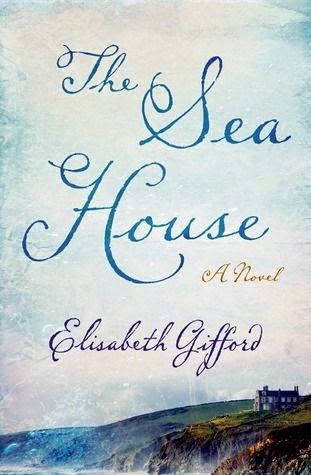Elisabeth Gifford’s debut novel highlights the healing that comes from honesty and vulnerability
Discover healing in the
search for truth
Elisabeth Gifford’s
debut novel highlights the healing that comes from honesty and vulnerability
What happens when you bring the truth of who you are into
the light? In her impressive debut novel, The Sea House (St. Martin’s Press/April 15, 2014/ISBN: 978-1250043344/$25.99), author
Elisabeth Gifford introduces readers to characters who are forced to dig up the
pain and secrets of their past in order to let the fresh air of faith and grace
purify and heal the broken places in their heart.
Gifford was inspired to write The Sea House after coming across a letter in The Times archives from 1809, in which a Scottish schoolmaster
claimed to have spotted a mermaid. Weaving the ancient Gaelic myth of the
selkies into her story, she has created a sweeping tale of hope and
redemption that is an ode to the healing readers can find when they acknowledge
the truth about themselves.
Readers
of The Sea House are taken back to
1860 and meet Alexander Ferguson, a newly ordained vicar and amateur scientist who
takes up his new parish on the poor, isolated Scottish island of Harris. He hopes
to uncover the truth behind the legend of the selkies — mermaids or seal people
who have been sighted off the northern coasts of Scotland for centuries. Family
legend says Alexander is actually descended from selkies. As he struggles to be
a good pastor, his maid Moira faces the eviction of her family by Lord
Marstone, whose family owns the island. Their time on the island will forever
change the course of their lives, but the white house where the vicar lives on
the edge of the dunes keeps its silence long after they are gone.
Readers
may identify much of their own faith journey in the vicar’s story. “Alexander says he believes in grace, but he really believes
in a formula where his particular failures cannot really be forgiven,” Gifford
reveals. “So he tries incredibly hard to become a better person. Only after he
sees how miserably he fails as a pastor does he let go and accept the mystery
of grace.”
It
will be more than a century before the house reluctantly gives up its secrets,
when Ruth and Michael buy the grand, yet dilapidated, building and begin
to turn it into a home. Their dreams are marred by a shocking discovery: Buried
under the house are the tiny bones of a baby whose fragile legs are fused
together. Is it a mermaid child? Who buried the bones and why? To heal her own
demons, Ruth feels she must discover the secrets of her new home — but the
answers to her questions may lie in her own traumatic past.
Connecting
with the truth of one’s story is a critical theme in The Sea House. “I suppose there’s a human impulse to invent a
better self so other people, and even God, will like us more and not turn away
from us,” Gifford explains. “Jesus came to a very real and ordinary world, and
that’s where God meets us. He sees all of us and doesn’t turn away. For
Christians, we have the option of rewriting our stories around the extravagant
love shown to us on the cross, if we choose to.”
To keep up with Elisabeth Gifford,
visit www.elisabethgifford.com, become
a fan on Facebook (ElisabethGiffordAuthor)
or follow her on Pinterest (LizGifford355).
Advance
Praise
“Gifford moves nimbly between the centuries and
voices of her intriguing tale. She is a singular and poetic writer.”
~ Rhidian
Brook, author of The Aftermath
“A sweeping summer read, packed with an epic
tale of loss, love and hope.”
~ Irish News
“An epic, sweeping tale of loss, hope and
redemption, and how we heal ourselves with the stories we tell.”
~ The Little
Reader Library
Elisabeth Gifford grew up in a vicarage in the industrial Midlands. She
studied French literature and world religions at Leeds University and has
published poems in Cinnamon Press and
The Oxford Magazine. She’s also written articles for The Times and The
Independent, along with a nonfiction
book, The House of Hope (2011), a biography of Dr. Joyce Hill who
opened a rescue center for abandoned babies in China. The Sea House has been shortlisted for the Historical Writer’s
Association Crown debut award. Her second novel, Return to Fourwinds, will be released in the UK in September 2014.
Gifford has a degree in creative writing from Oxford OUDCE and an M.A. in creative
writing from Royal Holloway College. She is married to an illustrator, and
together they have three children. The family divides their time between
Kingston, near London, and the Hebrides in Scotland.
To keep up with Elisabeth Gifford,
visit www.elisabethgifford.com, become
a fan on Facebook (ElisabethGiffordAuthor)
or follow her on Pinterest (LizGifford355).


Comments